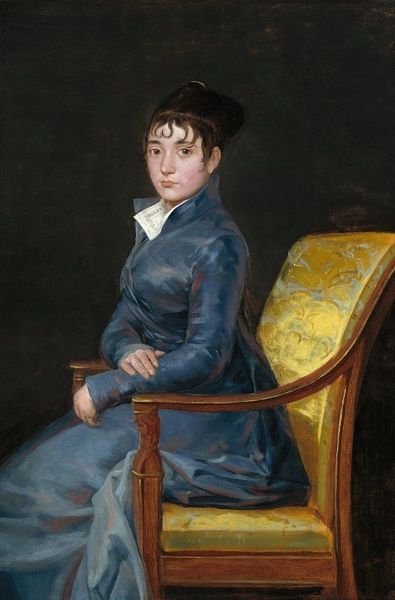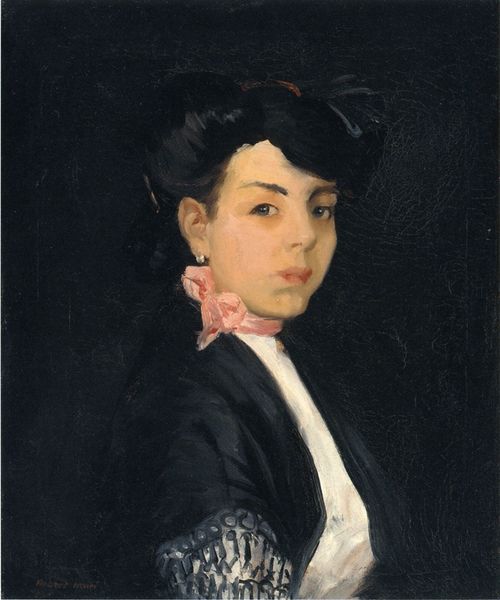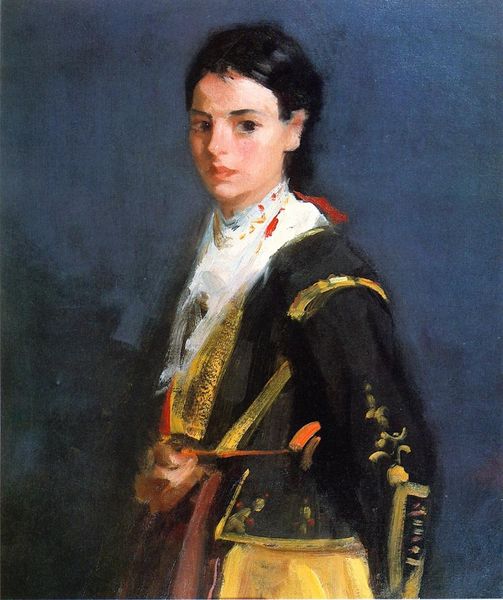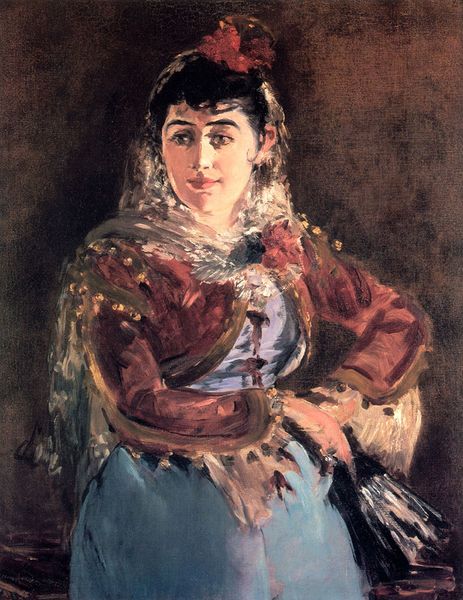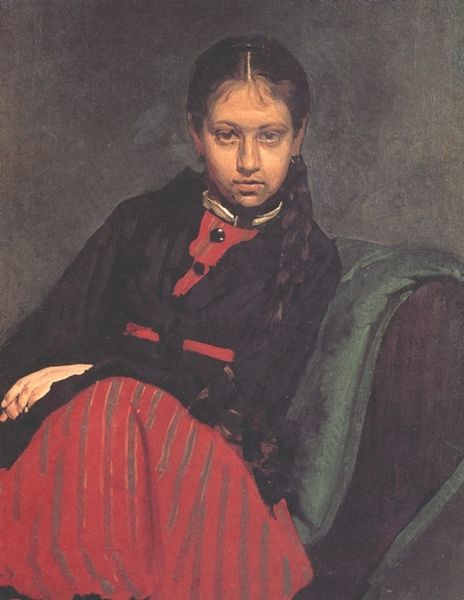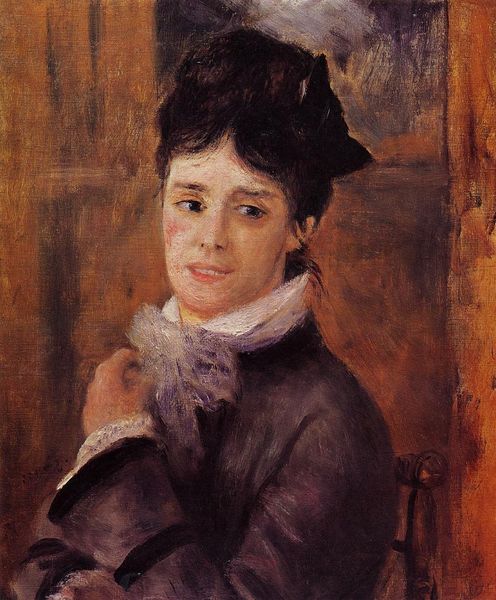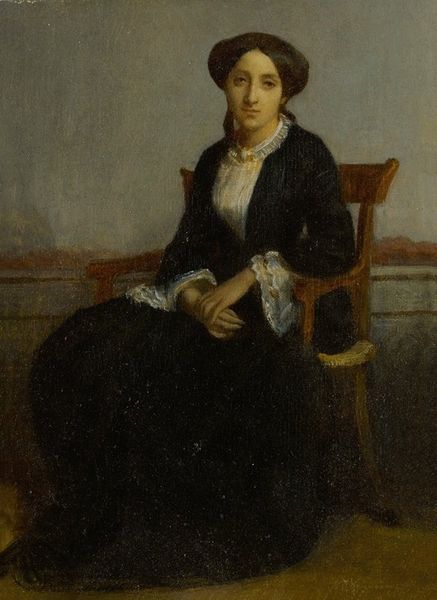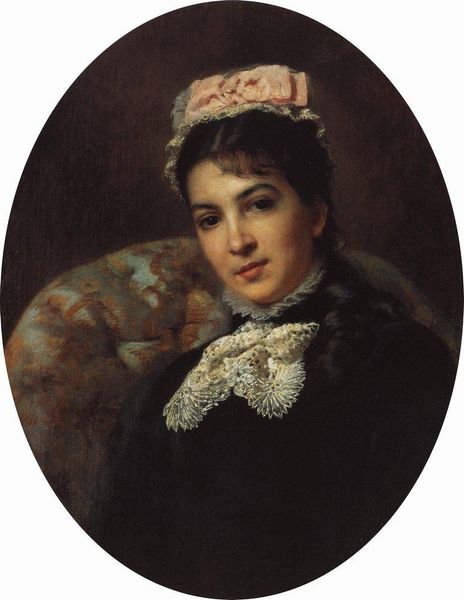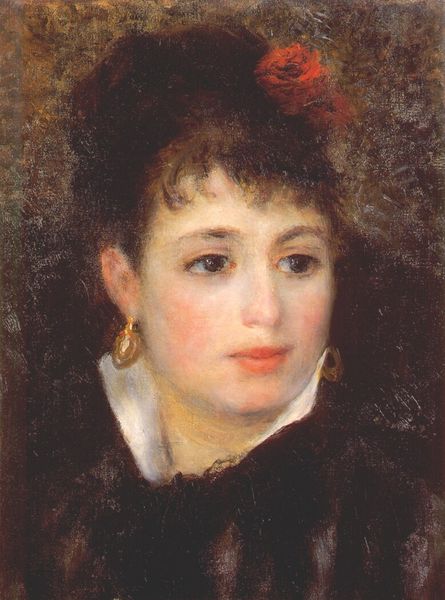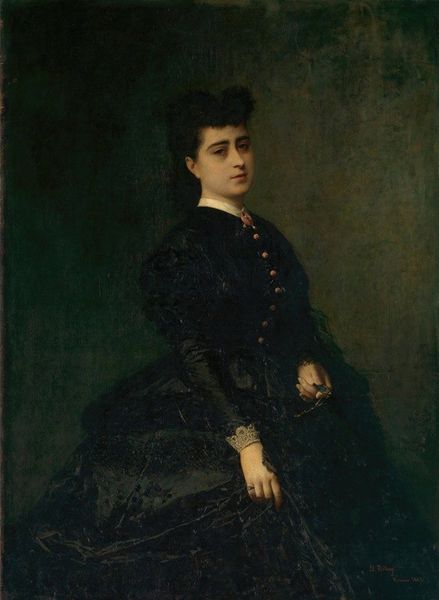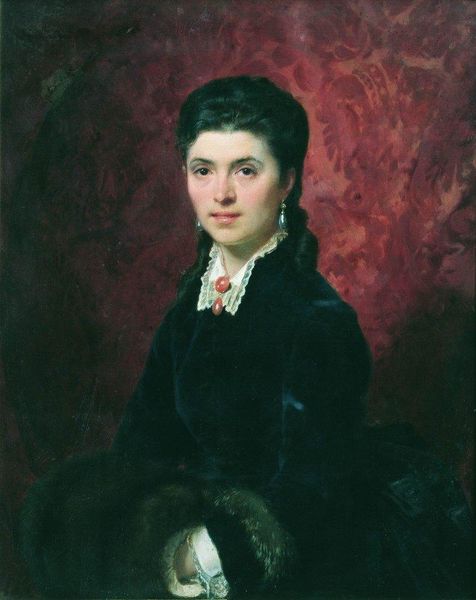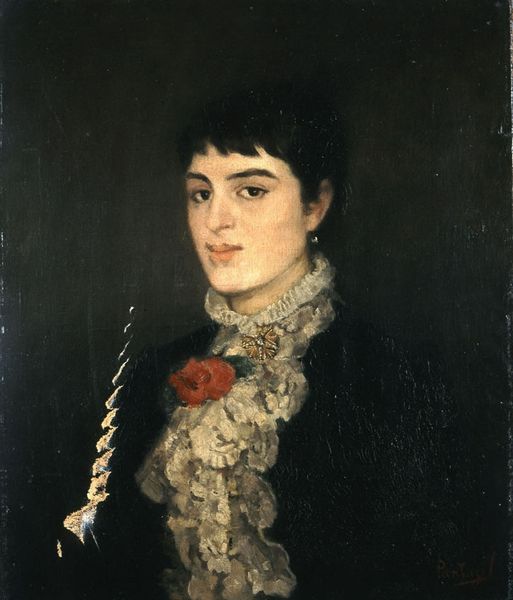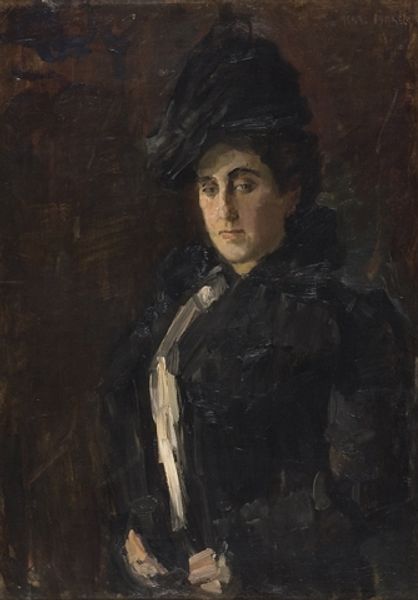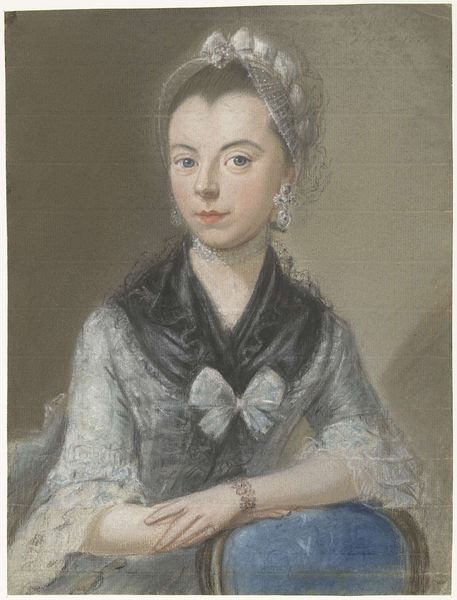
#
portrait
#
portrait
#
portrait reference
#
portrait head and shoulder
#
animal portrait
#
animal drawing portrait
#
portrait drawing
#
facial portrait
#
sitting
#
portrait art
#
female-portraits
#
fine art portrait
#
digital portrait
Dimensions: 119.8 x 79.4 cm
Copyright: Public domain
Francisco de Goya painted "Dona Teresa Sureda" in Spain during a period of immense social and political upheaval, somewhere between 1790 and 1820. Goya's portrait captures Dona Teresa with a direct gaze. She is depicted seated, but there is a sense of restraint in her posture, which could be interpreted as a reflection of the limited roles women occupied in society at the time. Her clothing, while elegant, is not overtly ostentatious, suggesting a balance between adhering to social expectations and expressing individuality. There is a tension in this work. While the portrait adheres to the conventions of depicting women of the Spanish elite, there is also an element of realism in Dona Teresa's expression. In this sense, Goya transcends traditional representations and offers a more nuanced portrayal of female identity. The painting resonates with the historical context of a society on the cusp of change. It invites us to contemplate the personal experiences of women like Dona Teresa within broader narratives of identity, gender, and class.
Comments
No comments
Be the first to comment and join the conversation on the ultimate creative platform.
